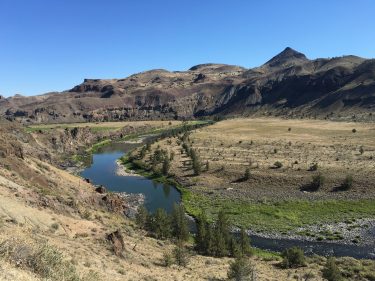
Climate change will force many amphibians, mammals and birds to move to cooler areas outside their normal ranges, provided they can find space and a clear trajectory among our urban developments and growing cities.
But what chance do fish have to survive as climate change warms up waters around the world?
University of Washington researchers are tackling this question in the first analysis of how vulnerable the world’s freshwater and marine fishes are to climate change. Their paper, appearing online Sept. 11 in Nature Climate Change, used physiological data to predict how nearly 3,000 fish species living in oceans and rivers will respond to warming water temperatures in different regions.
“Climate change is happening. We need tools to try to identify areas that are going to be the most at risk and try to develop plans to conserve these areas,” said lead author Lise Comte, a postdoctoral researcher in the UW’s School of Aquatic and Fishery Sciences. “It’s important to look at the organisms themselves as we cannot just assume they will all be equally sensitive to these changes.”
Read more at UW Today »
